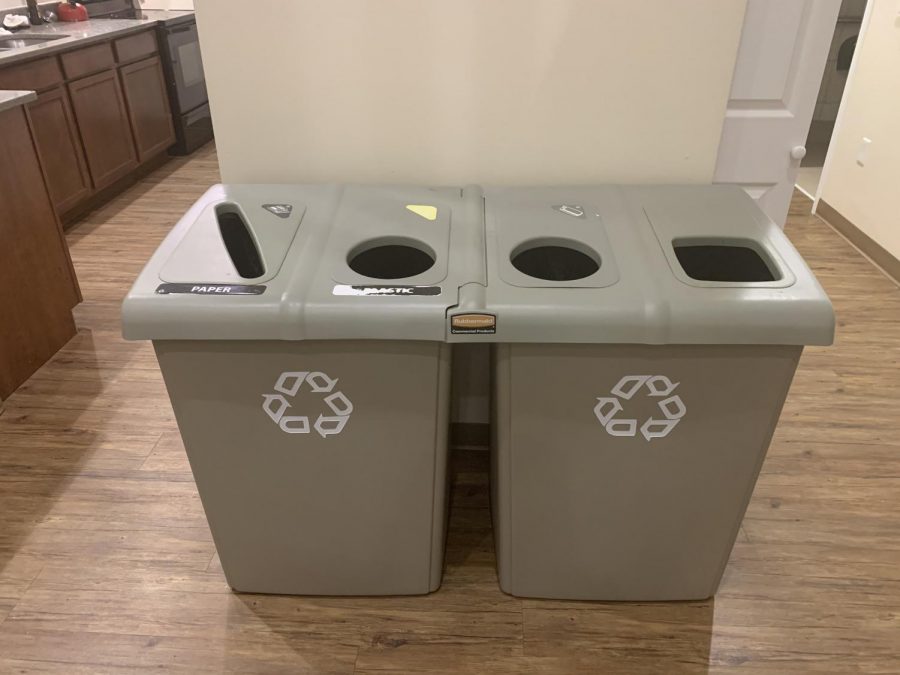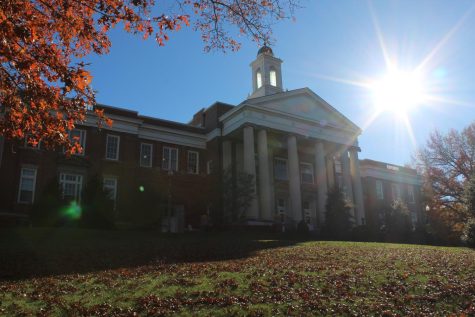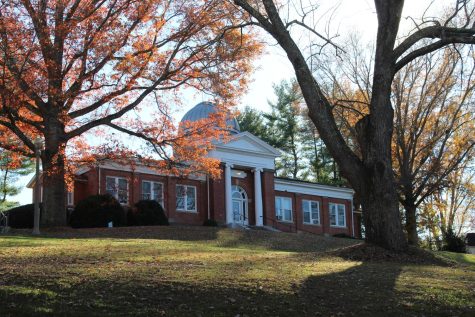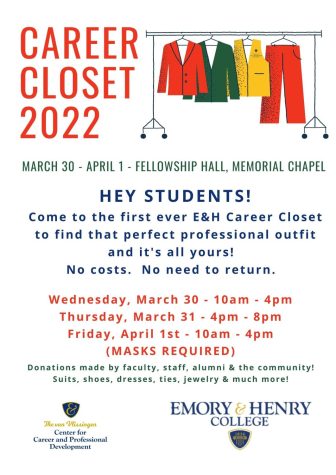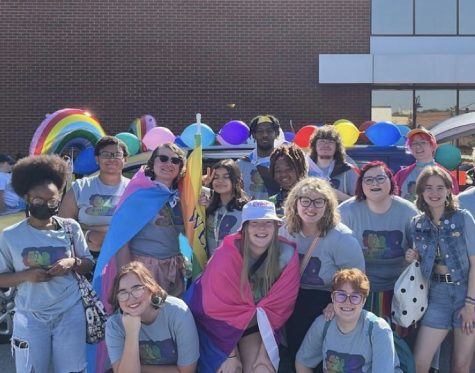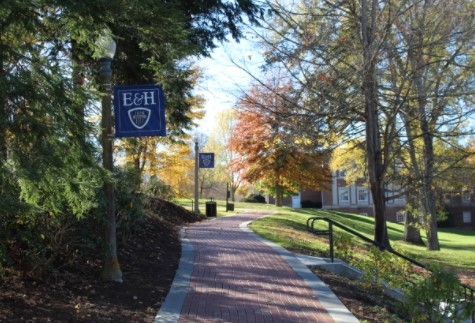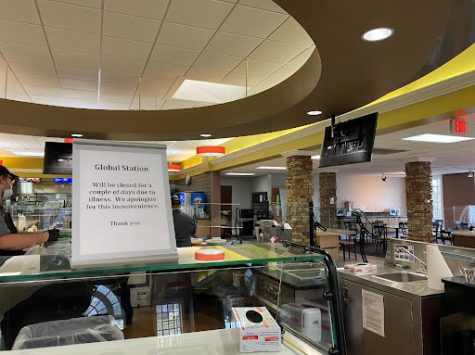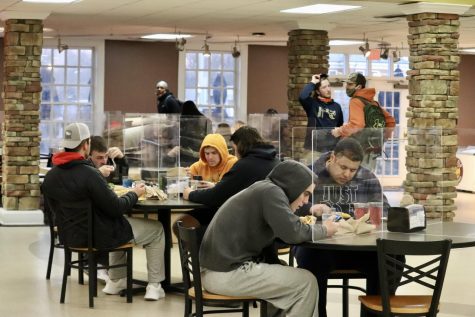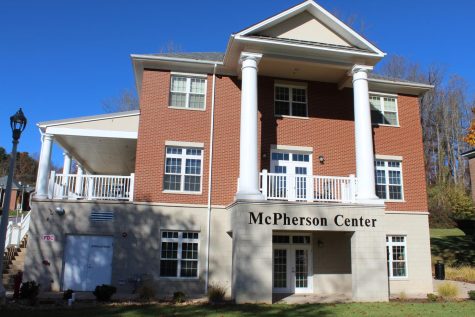Emory Climate Collaborative Pushes for Student Involvement in Recycling
Recycling bins, like this one in Carter Residence Hall, are empty as there is no access to paper or plastic recycling in the county. Only recycling aluminum is an option for now, so the ECC encourages decreasing the use of single use plastic and paper.
Camille Hoad, Guest Contributor
As part of a recycling initiative, the Emory Climate Collaborative (ECC), a student organization dedicated to making the campus community more environmentally conscious, is encouraging students to reduce the use of single-use plastics and recycle aluminum when possible.
Clare Carter, president of the ECC, said that the organization was the first to discover that the campus had lost its access to recycling plastic and paper in 2020.
“The students thought that when you put things into the recycling containers, they were recycled,” said Carter. “What ended up happening was that since Washington County and the surrounding counties stopped plastic recycling — which is a larger, geopolitical issue and not the fault of the County — the college wasn’t recycling the products.”
Dr. Edward Davis, chair of the department of Geography and Earth and Environmental Sciences, as well as a faculty advisor to the ECC, believes that some of the challenges presented in this issue can be curbed if changes are made on a consumer basis.
“People need to buy products in order for recycling to work,” Dr. Davis said. “There’s not enough people buying paper made from recycled materials.”
Dr. Davis also pointed to larger issues at hand.
“There’s not a lot of market for taking plastics and making new things from them,” Davis said. “When you take plastic and melt it down, it becomes a substance not like the original plastic; it is a plastic with contaminants in it that is hard to turn back into something useful.”
Not all work is out of reach in terms of student involvement, however, as the college still has access to recycling aluminum.
“The only recycling available is aluminum because local churches take it and earn revenue off of that,” Carter said. Carter also shared that Sharon Wright, interim chaplain at the Emory United Methodist Church, helps to collect aluminum for such recycling.
The money collected in this endeavor is dispersed throughout the surrounding community.
“The aluminum we collect goes to help low income families,” Dr. Davis said. “We have been doing that for 50 years.”
In similar efforts, the ECC hopes to facilitate the installation of campus-wide bins for recycling aluminum cans in the coming weeks.
For those wanting to continue being environmentally conscious when it comes to paper and plastic materials, Carter and Dr. Davis advocate for a system of self-awareness alongside a recent update.
“Sam Walker, who runs our dining hall, just committed for us to switch from plastic water bottles to little cardboard boxes for water, like a milk carton,” Dr. Davis said
“In terms of plastic and paper,” Carter said, “the ECC’s philosophy is to reduce the amount of things that you use. Instead of using a plastic water bottle, use a reusable water bottle. Reduce the amount of plastic that you use and recycle where you can.”

Alexa is a third year student at E&H double majoring in Mass Communications and Creative Writing. Alexa started working for Whitetopper as a news writer...

